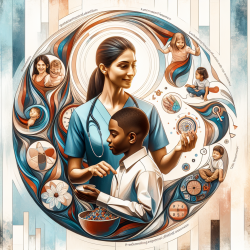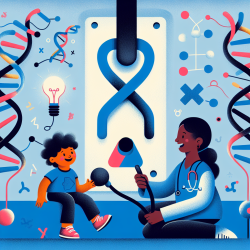Introduction
In the field of speech-language pathology, data-driven decisions are crucial for creating effective interventions. The recent research article titled "Sexual and reproductive health needs and risks of very young adolescent refugees and migrants from Myanmar living in Thailand" provides valuable insights that can be utilized by practitioners to enhance their skills in addressing the needs of vulnerable populations.
Understanding the Research
The study conducted by the Women's Refugee Commission and Johns Hopkins University focused on the sexual and reproductive health (SRH) needs of very young adolescents (VYA) aged 10-14 years in refugee and migrant settings in Thailand. Through focus group discussions with 176 participants, the research highlighted key locations for obtaining SRH information, such as schools, youth centers, and religious institutions. However, access to these resources was found to be unequal between boys and girls.
Key Findings and Implications for Practitioners
Practitioners can leverage the findings of this research in several ways:
- Enhancing Communication: Encourage open dialogues between adolescents and their parents or guardians about SRH topics. The study indicates that building trust and comfort in these conversations can significantly improve outcomes.
- Utilizing Community Resources: Schools and community centers are pivotal in disseminating SRH information. Practitioners should advocate for equal access to these resources for both boys and girls.
- Addressing Safety Concerns: The research highlights the risks of trafficking and violence faced by adolescents. Practitioners should work with local authorities and community leaders to create safer environments.
Encouraging Further Research
The study emphasizes the need for rigorous research on youth-directed programs and policies. Practitioners are encouraged to engage in or support further research to develop evidence-based interventions tailored to the unique needs of VYA in refugee and migrant settings.
Conclusion
By implementing the outcomes of this research, practitioners can enhance their skills and contribute to better SRH outcomes for very young adolescents. The study serves as a call to action for more inclusive and effective approaches in addressing the needs of vulnerable youth populations.
To read the original research paper, please follow this link: Sexual and reproductive health needs and risks of very young adolescent refugees and migrants from Myanmar living in Thailand.










